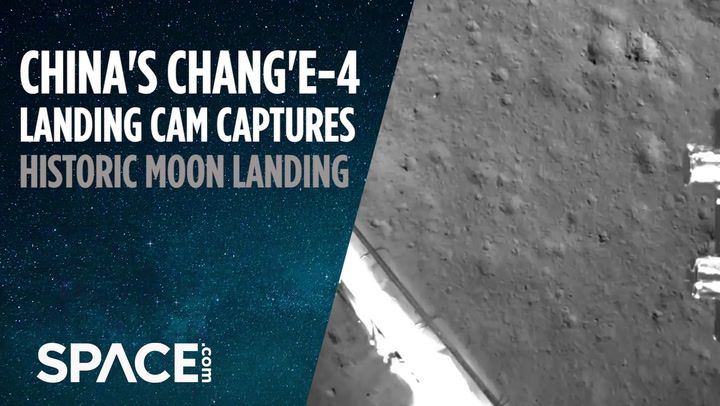What’s new at RAADfest 2019?? Besides RAADclinic, new topics will be discussed: Check it out and Register now: http://www.raadfest.com/


What’s new at RAADfest 2019?? Besides RAADclinic, new topics will be discussed: Check it out and Register now: http://www.raadfest.com/



China plans to build a scientific research station on the moon in “about 10 years,” according to the state news agency Xinhua.
The China National Space Administration (CSNA) intends to build the research station in the region of the moon’s south pole, Zhang Kejian, head of CSNA, said in a public statement, Xinhua reported. That’s a bit of a departure from the six successful NASA Apollo moon landings, which took place closer to the moon’s equator between 1969 and 1972.
Details of China’s long-term lunar plans are still sketchy, but CSNA has made significant steps toward lunar exploration. Earlier this year, the Chinese successfully landed the uncrewed Chang’e-4 on the far side of the moon, and have also placed astronauts aboard two temporary space stations, Tiangong-1 and Tiangong-2. Their space agency also plans to put a larger, more permanent station into orbit in the coming years.
This super yacht rents for $280,000 per week. Here’s what’s on board… (via Secret Lives of the Super Rich)

I’m used to the shaming look I get from my peers when I crack open a can of sugar-free Red Bull. The questions – and judgement – never end. “That stuff’ll kill you,” someone said to me the other day, shaking his head. “So many chemicals!” was what I heard last week.
Truth be told, Red Bull (at least the sugar-free kind) isn’t all that terrible for you. Besides having only 10 calories and no sugar, it has only 80 milligrams of caffeine, about a third of the amount in a tall Starbucks drip coffee.
As far as its other ingredients – namely B vitamins and taurine – go, scientific studies have found both to be safe.
This particular version of Dadabots has been trained on real death metal band Archspire, and Carr and Zukowski have previously trained the neural network on other real bands like Room For A Ghost, Meshuggah, and Krallice. In the past, they’ve released albums made by these algorithms for free on Dadabots’ Bandcamp — but having a 24/7 algorithmic death metal livestream is something new.
Carr and Zukowski published an abstract about their work in 2017, explaining that “most style-specific generative music experiments have explored artists commonly found in harmony textbooks,” meaning mostly classical music, and have largely ignored smaller genres like black metal. In the paper, the duo said the goal was to have the AI “achieve a realistic recreation” of the audio fed into it, but it ultimately gave them something perfectly imperfect. “Solo vocalists become a lush choir of ghostly voices,” they write. “Rock bands become crunchy cubist-jazz, and cross-breeds of multiple recordings become a surrealist chimera of sound.”
Carr and Zukowski tell Motherboard they hope to have some kind of audience interaction with Dadabots in the future. For now, you can listen to it churn out nonstop death metal and comment along with other people watching the livestream on YouTube.